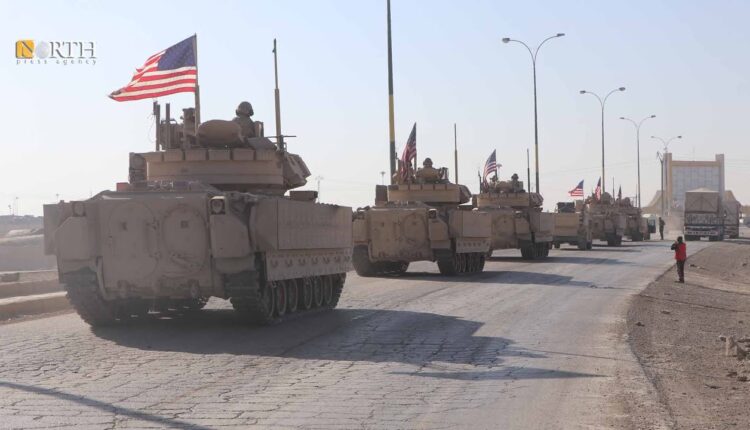U.S. to Begin Gradual Military Withdrawal from Syria, Israeli Report Says
By Kardo Roj
DAMASCUS, Syria (North Press) – The United States is reportedly preparing to begin a phased military withdrawal from Syria in the coming months, according to a report published Tuesday by the Israeli daily Yedioth Ahronoth, citing senior U.S. security officials.
The report claims that American officials have formally informed Israeli defense counterparts of the planned drawdown, which is expected to commence within two months. While no official statement has yet been released by Washington, the revelation has triggered regional concerns, particularly regarding the security vacuum that may follow and potential shifts in influence among key players operating in Syria.
The Israeli newspaper noted that Israel is actively pressuring Washington to postpone the withdrawal, citing fears of increased Turkish military activity and influence in areas currently under U.S. oversight, especially those governed by the Kurdish-led Syrian Democratic Forces (SDF).
Israel is reportedly wary that a reduced American footprint could embolden Turkish efforts to expand control over strategic locations in northern Syria. The Turkish military, along with allied Syrian factions, has previously seized territory in cross-border operations targeting Kurdish-controlled zones—moves that have altered the dynamics of the conflict and displaced tens of thousands.
Israeli officials also fear that the absence of U.S. deterrence could encourage Syrian government forces and Iranian-linked groups to strengthen their foothold near Israeli borders. These concerns have prompted Tel Aviv to conduct intermittent airstrikes and security operations aimed at curbing the presence of such actors in southern Syria.
In a potentially significant political signal, Turkish President Recep Tayyip Erdoğan stated earlier on Tuesday that Ankara would support the Syrian government “against any party attempting to destabilize the country.” While Erdoğan did not explicitly mention the U.S. or SDF, his statement comes amid Ankara’s growing assertiveness in the region.
Turkey views the SDF, which is predominantly led by the Kurdish People’s Protection Units (YPG), as an extension of the Kurdistan Workers’ Party (PKK)—designated a terrorist organization by Ankara. However, the SDF has been a critical U.S. partner in the fight against the Islamic State (ISIS), and continues to play a pivotal role in maintaining stability across much of northeast Syria.
Analysts suggest that the reported U.S. withdrawal could complicate these dynamics, particularly if Turkey seeks to extend its influence into areas currently secured by the SDF.
The Autonomous Administration of North and East Syria (AANES), which governs territories under SDF control, has not issued a formal comment on the reported withdrawal plans. However, local officials have previously voiced concerns about the implications of a sudden or uncoordinated U.S. exit.
Over the past several years, the SDF—with support from the U.S.-led Global Coalition—has been instrumental in dismantling ISIS sleeper cells, managing detention facilities holding thousands of ISIS fighters, and overseeing one of the region’s few functional civil administrations.
Security experts warn that any disruption to this fragile equilibrium could trigger new waves of violence, displacement, and territorial fragmentation—developments that would likely have regional and international repercussions.
The future of northeast Syria remains closely tied to the continued presence and support of international partners. A recalibration of U.S. involvement could either prompt renewed diplomacy or usher in a new phase of uncertainty—especially for communities relying on the security framework maintained by the SDF and AANES.
As developments unfold, questions linger over how the U.S. plans to maintain its influence in Syria and whether local governance structures can withstand growing external pressures without direct American support.

